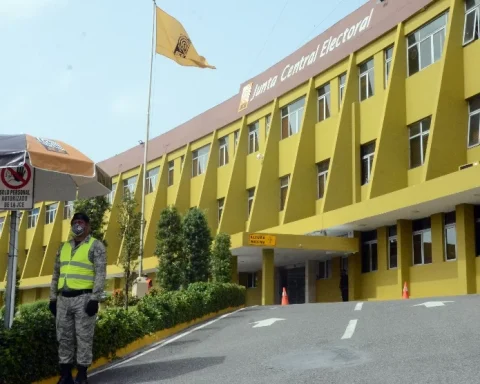The substitute judge Alejandro Leiva weighs an accusation for a crime of sexual abuse especially aggravated, for having been against a minor, Informativo Sarandí reported and confirmed The Observer. The Florida judge of the 4th Turn, Victoria Abraham, determined this in July 2021.
The Public Prosecutor’s Office Turn had requested that Leiva remain in preventive detention, but Judge Abraham ordered house arrest for 180 days, because there were no anklets available, and prohibited him from having contact with the teenager for the same period. In January, when they expired, the measures were renewed. The prosecution appealed but the Court of Appeals of the First Shift confirmed the judge’s decision. Since then, the judge does not exercise.
The event that gave rise to the complaint happened in February 2021. One night, the 17-year-old victim was walking near the Florida Hospital in the direction of the Prado Piedra Alta, where he planned to meet with a group of friends. But on the way she noticed that a truck was approaching her and from inside a man asked her the time. At that moment the back door was opened and –according to the Prosecutor’s Office- Leiva came out, who forced him into the vehicle.
According to the prosecution’s reconstruction, they then went to the judge’s house, who forced the minor down and forced him to enter. As he hit him on the back, he forced him up the stairs to his room, where he held him down, lowered his arms and raped him. Afterwards, she threw him out of the place, threatened him so that he would not tell what had happened and for the same purpose offered him $1,000, they affirmed from the Public Ministry.
The victim was encouraged to report a short time later, when he escaped from a hospital where he was hospitalized for a suicide attempt. He went to his house and told his mother that he had been abused, according to the judgment of the Court of Appeals to which he agreed. The Observer.
Four months after the fact, a forensic doctor examined him and determined that he had some injuries, although minor. But from his clinical history it is clear that from that moment the young man changed his attitude by attacking himself and others. Psychological experts reported that he has symptoms typical of a person who was abused.
After the complaint, the victim pointed to the judge in an identity parade. He was shown several men and the young man did not hesitate to point to Leiva as the person who raped him. Later, the Police managed to locate the magistrate in the vicinity of the place where the crime occurred, dressed similarly to that described by the victim.
The arguments of the defense
For its part, the defense argued that the complainant’s account presents “inconsistencies“For example, he was not able to say on what date the event happened, beyond stating that it was in February. In addition, he stated that there are differences between the van he described and the one that the Prosecutor’s Office introduced in the investigative folder. To that It is added that –according to the defense– the judge has no driving record and does not own any vehicle.
On the other hand, he stressed that they live in a small town and that the judge is “a public figure”, so “it is not understood that he has carried out an action of this caliber (in a busy street, acting with his face uncovered, entering the young to your own home). Although does not deny that there was an offer of money for the victim to remain silent, they stated that this does not necessarily constitute threats.
Lastly, they argued that the suicide attempts, ideas of death, among other consequences that the young man may have suffered, came from time before the alleged sexual assault.
Why the prosecution failed to “persuade” the court and the judge was not arrested
To determine the precautionary measures, the parties must argue whether or not there are procedural risks (risks that the accused will harm the accused or the normal course of the investigation).
The prosecution argued that the seriousness of the act – which carries a minimum sentence of two years in prison – “makes it plausible to maintain that the accused will seek to escape.” But in addition, they pointed out that those involved have crossed paths in the center of the city and the defendant looked at the victim “in an intimidating way.” Besides, he offered her money in exchange for his silence more than once.
The defense, for its part, maintained that if the accused had wanted to escape, he would have already done so and that the victim herself stated that “she no longer saw her client; and that although she saw him in the center, he evaded him, which is incompatible with a threatening attitude”. Besides, the judge moved more than 40 kilometers from the city.
The Court of Appeals for Criminal Matters of the First Round unanimously determined –with the votes of Graciela Gatti, Alberto Reyes and Sergio Torres– that he defense arguments were grounded.
The main reason, they said, was that The Prosecutor’s Office invoked the procedural risks but did not substantiate them on “specific elements” enough for the court to determine that preventive detention should be ordered, a “last ratio” measure. The Criminal Procedure Code states that imprisonment is an exceptional measure.
The risk to the safety of the victim and the risk of hindering the investigation “are not enough to persuade the Chamber to impose such an exceptional measure,” they argued. The magistrates pointed out that if these risks existed, they could be settled with other types of measures.
They recalled that no defendant should be treated as guilty and that this type of measure should be used when “there is serious and well-founded suspicion” that there are procedural risks. In his opinion, not so much merit was gathered for this exceptional criterion to be enabled.
The court confirmed that the corresponding measure was house arrest.

















